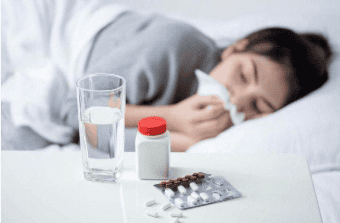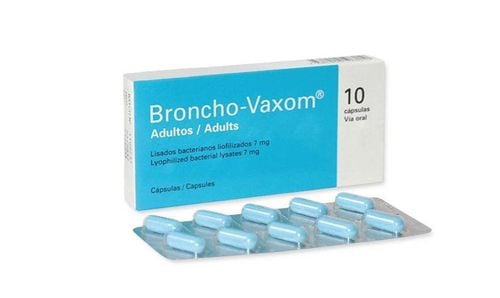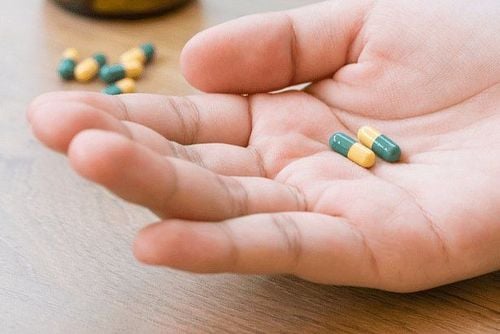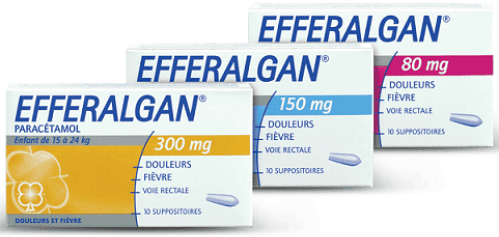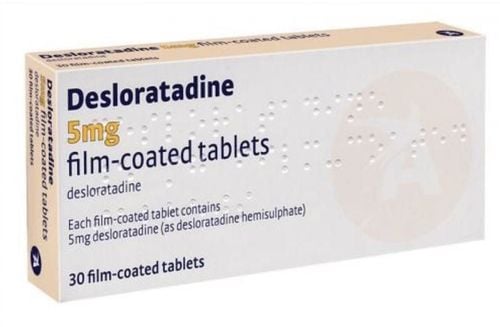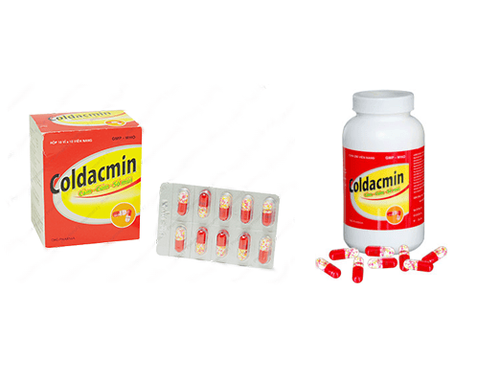This is an automatically translated article.
Fepa medicine is a two-component antipyretic analgesic (including Acetaminophen, Chlorpheniramine) with the main effect of reducing pain, reducing fever and treating some problems of gout and osteoarthritis. To find out what Fepa is, please read the information below.
1. Effects of Fepa
1.1. What is Fepa? Fepa medicine is an anti-inflammatory pain reliever, antipyretic - Drug Visa number / Registration number / ID: VD-25863-16 manufactured by Thai Binh Pharmaceutical and Medical Materials Joint Stock Company - VIETNAM. Fepa medicine contains ingredients Paracetamol 400mg; Chlorpheniramine maleate 2mg and is packaged as
1.2 Tablets. Fepa Fepa is a medicine that is effective in the treatment of flu symptoms such as fever, stuffy nose, runny nose, runny nose, headache. It contains Paracetamol 400mg and Chlorpheniramine maleate 2mg.
Paracetamol is a pain reliever - fever reducer. The drug acts on the thermoregulatory center in the hypothalamus causing hypothermia, hyperthermia due to vasodilation, and increased peripheral blood flow. The drug works to lower body temperature in people with fever, but rarely lowers body temperature in normal people.
Chlorpheniramine maleate is an antihistamine that, through competitive inhibition of H1 receptors, leads to a reduction in edema and urticaria in hypersensitivity reactions such as allergic reactions and anaphylaxis. Chlorpheniramine also has anticholinergic effects.
2. How to use Fepa
2.1. How to take Fepa Each drug, pharmaceutical product is produced in different forms and has different ways of using according to the route of administration. The usual routes of drug administration by drug form are: oral drugs, injections, external drugs and suppositories. Carefully read the instructions on how to use Fepa medicine listed on the drug leaflet, do not arbitrarily use the drug by other routes not stated in the instruction sheet for Fepa medicine.
2.2. Dosage of Fepa Dosage of Fepa for Adults: Dosage regulations are usually intended to guide adult subjects for oral administration. Dosage for other routes is specified in the leaflet. Do not change the dose on your own without consulting your doctor or pharmacist.
Dosage of Fepa for children: Differences between children and adults such as pharmacokinetics, pharmacodynamics, side effects... especially children are not allowed to be included in clinical trials ready before issuing a marketing authorization for a new drug. Therefore, using this drug for children should be very careful even with drugs that have not been warned.
2.3. Overdose, missed dose and management What to do in case of overdose Fepa: Prescription drugs require a prescription from a doctor or pharmacist. Over-the-counter medicines require a leaflet from the manufacturer. Carefully read and follow the exact dose indicated on the prescription or medication leaflet. When taking an overdose of Fepa, you need to stop taking it, immediately report it to your doctor or pharmacist when there are unusual symptoms. In case of an overdose of Fepa, there are symptoms that require emergency: Immediately call 911 for guidance and help. Family members should bring medical records, all prescriptions/bottles of medicine that have been and are being used so that doctors can quickly diagnose and treat
What to do if a dose of Fepa is forgotten Usually medicines can be taken 1-2 hours longer than prescribed in the prescription. Unless there is a strict rule about the time of use, the medicine can be taken a few hours after forgetting. However, if the time is too far from the time you need to drink, you should not take it, which can be dangerous for the body. It is necessary to strictly adhere to or consult a doctor before making a decision.
3. Contraindications of Fepa
People with hypersensitivity to one of the ingredients of the drug. The patient is often anemic or has kidney, heart, lung, or liver disease. Patients with glucose-6-phosphate dehydrogenase (G6PD) deficiency, acute asthma attacks, prostate enlargement, narrow-angle glaucoma, bladder neck obstruction, pyloric obstruction, duodenal obstruction. Breastfeeding person. People who are taking MAOIs within 14 days. Impaired liver function.
4. Notes when using Fepa
For people with phenylketonuria - urine and people who have to limit the amount of phenylalanine put into the body: Should avoid taking paracetamol with drugs or foods containing aspartame. For some people with hypersensitivity (asthma) should avoid taking paracetamol with medicine or food containing sulfites. Should be used with caution in patients with pre-existing anemia, impaired liver and kidney function. Excessive alcohol consumption can increase the hepatotoxicity of paracetamol, so avoid or limit alcohol consumption.
Chlorpheniramine may increase the risk of urinary retention, especially in patients with prostatic hypertrophy, urinary tract obstruction, pyloric obstruction, and exacerbation in patients with myasthenia gravis. The sedative effect of chlorpheniramine is increased with alcohol intake and when used concomitantly with other sedatives. Use caution when used for people with chronic lung disease, shortness of breath or difficulty breathing, people with glaucoma, the elderly. Risk of tooth decay when used for a long time.
Patients with rare hereditary problems of galactose intolerance, the lapp lactase deficiency or glucose-galactose malabsorption should not take this medicine.
For paracetamol containing drugs: Physicians should warn patients about signs of serious skin reactions such as Stevens-Johnson syndrome (SJS), toxic epidermal necrolysis (TEN) or Lyell's syndrome. acute generalized exanthematous pustulosis (AGEP) syndrome.
Pregnant and lactating women: Pregnant women: use the drug only when absolutely necessary. Taking chlorpheniramine during the third trimester of pregnancy can lead to serious reactions (such as seizures) in the newborn.
Lactating women: should consider either not breastfeeding or not taking the drug, depending on how necessary the drug is for the mother.
Effects of drugs on work: It is necessary to pay attention to the risk of drowsiness of the drug while driving, operating machinery, working at height and other cases.
5. Side effects of Fepa
Related to paracetamol: Serious skin reactions, such as Stevens-Johnson syndrome, Lyell's syndrome, toxic epidermal necrolysis, acute generalized pustular rash. If a rash or other skin manifestations appear, discontinue use and consult a physician.
Skin rashes and other allergic reactions occur occasionally. Usually erythema and urticaria, but sometimes more severe and may be accompanied by drug fever and mucosal lesions. In rare cases, paracetamol has caused neutropenia, thrombocytopenia and pancytopenia.
When using, patients may experience some side effects such as: attention disorder, dizziness, headache. Digestive: nausea, dry mouth, blurred vision, fatigue... In addition, if there are other reactions not listed in the patient's list, they should actively ask the treating doctor.
6. How to store Fepa
Store the medicine at below 40 degrees Celsius, preferably 15 - 30 degrees Celsius, avoid freezing the solution or oral suspension.
Be careful not to keep Fepa medicine out of the reach of children, away from pets. Before using Fepa, it is necessary to check the expiry date indicated on the product packaging, especially with medicines that are stored at home.
Above is important information about Fepa medicine. If you have any further questions, you should talk to your doctor directly for appropriate advice.
Please dial HOTLINE for more information or register for an appointment HERE. Download MyVinmec app to make appointments faster and to manage your bookings easily.




